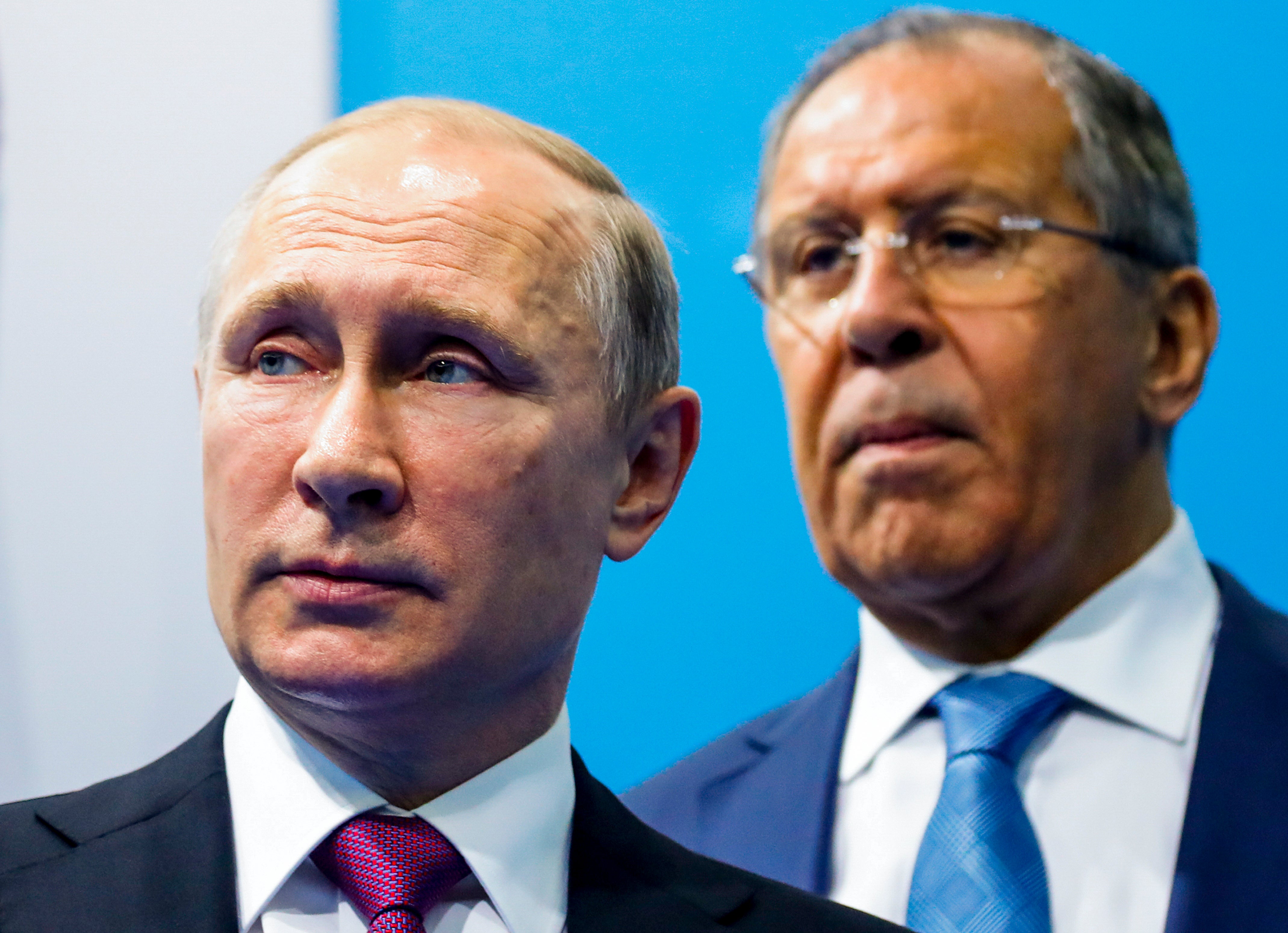'Minister No': Lavrov embodies Moscow’s steely posture
Russian Foreign Minister Sergey Lavrov is embodying the Kremlin’s defiant posture during the invasion of Ukraine with a mixture of toughness and sarcasm

Your support helps us to tell the story
From reproductive rights to climate change to Big Tech, The Independent is on the ground when the story is developing. Whether it's investigating the financials of Elon Musk's pro-Trump PAC or producing our latest documentary, 'The A Word', which shines a light on the American women fighting for reproductive rights, we know how important it is to parse out the facts from the messaging.
At such a critical moment in US history, we need reporters on the ground. Your donation allows us to keep sending journalists to speak to both sides of the story.
The Independent is trusted by Americans across the entire political spectrum. And unlike many other quality news outlets, we choose not to lock Americans out of our reporting and analysis with paywalls. We believe quality journalism should be available to everyone, paid for by those who can afford it.
Your support makes all the difference.As Russia's top diplomat during the invasion of Ukraine, Foreign Minister Sergey Lavrov is embodying the Kremlin's defiant posture with a mixture of toughness and sarcasm.
While President Vladimir Putin single-handedly shapes the country’s foreign policy, Lavrov delivers Moscow’s message with a bluntness uncharacteristic of a diplomat.
In the role for nearly 18 years, the 71-year-old Lavrov has seen relations with the West shift from near-friendly to openly hostile, plummeting to a catastrophic new low with Russia's war against Ukraine. The invasion prompted the European Union to freeze the assets of both Putin and Lavrov, among others — an unprecedented blow to Moscow’s pride.
Lavrov's tenure as foreign minister is second only to that of Soviet Foreign Minister Andrei Gromyko, who was in office for 28 years. Like Gromyko, who was nicknamed Mr. Nyet (Mr. No), Lavrov has come to represent the uncompromising face of Kremlin foreign policy vis a vis the West.
He doesn’t mince words when defending what he sees as Moscow’s interests, and that style must appeal to the tough-talking Russian president.
In 2008, Lavrov famously responded to a reprimand from then British Foreign Secretary David Miliband by snapping: “Who are you to (expletive) lecture me?”
Like his boss, Lavrov has tapped into broad public nostalgia for the country’s Soviet-era clout. He has vented anger at the West, depicting the U.S. as arrogant, conceited, treacherous and determined to dominate the world. He has contemptuously dismissed Western allies as stooges obediently toeing Washington’s line to deter Russia.
Standing next to British Foreign Secretary Liz Truss after their meeting last month, a grim-faced Lavrov snapped that their talks were like a “conversation between deaf and dumb.”
After a lifelong diplomatic career, Lavrov looks visibly bored by daily routine. When he appears before the media, he doesn’t bother to hide his irritation at a naive or provocative question, often responding with an air of contempt or plain mockery.
When a CNN reporter in a video call from the Ukrainian capital asked Lavrov whether Moscow wants to topple the Ukrainian leadership, the aide who managed Friday’s briefing interrupted and said it wasn’t his turn to put a question. The reporter continued, and an angry Lavrov weighed in: “He’s discourteous. He’s working in Ukraine now. He’s got infected with discourtesy.”
Lavrov has particular distaste for photographers, showing annoyance at the clacking of camera shutters.
At one news conference, he muttered an expletive into the microphone in apparent anger at disorderly reporters; the expression became a meme, widely adopted in T-shirt designs for the patriotic audience.
Lavrov has weathered endless waves of speculation that he was on the verge of retirement. Instead, he has become one of the longest-lasting members of Putin’s Cabinet and a perennial figure among a changing kaleidoscope of foreign counterparts.
Before becoming foreign minister, he served as Russia’s ambassador to the United Nations for 10 years and liked to have informal chats with journalists, trading news and jokes over a cigarette in the U.N. corridors. He writes poetry, sings songs on guitar with friends, and eagerly took part in skits with other diplomats at international events when Russia’s ties with the West were less rancorous.
But his smiles and easy ways are a thing of the past now that Lavrov launches daily, angry diatribes against the West over Ukraine, the largest ground conflict Europe has seen since World War II.
On Tuesday, he was barred from flying to Geneva to attend a U.N. conference after European Union members banned Russian planes from their skies as part of bruising sanctions against Moscow.
Lavrov denounced what he called the “outrageous” move in a video address to the U.N. session, charging that “the EU countries are trying to avoid a candid face-to-face dialogue or direct contacts designed to help identify political solutions to pressing international issues.”
“The West clearly has lost self-control in venting anger against Russia and has destroyed its own rules and institutions, including respect for private property,” Lavrov said. “It’s necessary to put an end to the arrogant Western philosophy of self-superiority, exclusivity and total permissiveness.”
___
Follow the AP’s coverage of the Ukraine crisis at https://apnews.com/hub/russia-ukraine